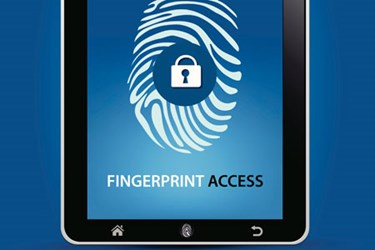While The Future Of Commerce Is Biometrics, Consumers Remain Wary Of The Risks

By Christine Kern, contributing writer

Over half of consumers expect to eliminate cash transactions by 2020.
Retailers have a serious challenge before them in terms of the payment options they offer their customers. As technology advances and makes new solutions available, it could have a serious impact on the way customers pay for their orders. But despite these advances, many consumers remain wary about the security risks of biometric solutions. In fact, approximately 40 percent of the more than 3,000 consumers surveyed by payments platform company Paysafe and research firm Loudhouse said biometric solutions are too risky to use right now.
The comprehensive study, conducted in the US, UK and Canada, examined attitudes towards money and consumer buying behavior, as well as how cash is merging with digital formats. The study reveals increased consumer confidence in mobile shopping, the start of a shift to new payment methods such as cryptocurrencies and the potential for retailers to lose relevance without the right payment mix for customers.
Paysafe and Loudhouse also found that 54 percent of consumers expect that by 2020 they will no longer need to carry cash for shopping. Currently, approximately one-third of respondents (31 percent) already use mobile wallets, and 18 percent have used biometric verification when buying online.
According to Bloomberg, the Danish government is now allowing some stores to refuse cash payments in a move towards a “post-cash” society. Meanwhile, for the first time in 2016, consumer card payments surpassed cash payments, for a staggering #23.1 trillion globally. And one third of all card payments are now contactless. The Paysafe report asserts, “A fast-paced and versatile payments environment is taking shape, where cash is evolving to merge with digital formats so that people can spend it easily, both online and in-store.”
Paysafe found that 14 percent of American already use cryptocurrencies and 31 percent use mobile wallets such as Android Pay and Apple Pay; however, Americans are still hanging onto some old-fashioned methods with 50 percent having written a check in the last month (compared to 30 percent of Britons, 40 percent of Canadians).
“One in seven US consumers have already started to use cryptocurrencies and one in six have used biometric identification. This core of early technology adopters will create the momentum for our next leap forward in payments, just as they did with mobile wallet use which has become mainstream in America. As consumer acceptance of a cash-free society grows, businesses are challenged to reimagine the shopping experience to allow for behaviors and payment models unthinkable a decade ago,” said Joseph Daly, Chief Operating Officer, Paysafe Payments Processing, North America.
“Today, the American consumer experience is defined by a huge diversification of choice – in retail options, services delivery and payment methods. In a rapidly transforming landscape, the merchants who survive will have invested early in emerging technologies that enable them to meet a range of customer payments preferences and quell security concerns – from cash and debit cards to mobile payments and eventually biometrics and cryptocurrencies.”
But even as the report found increased consumer confidence in mobile payments, a proliferation of new ways to process transactions, and increasing consumer fluency in ‘multi-browsing’ on the move, many customers are also still suspicious of the security of contactless or biometric payments.
But Oscar Nieboer, Chief Marketing Officer, Paysafe, also cautions that “Cash-free is not cash-less. Consumers have more ways than ever to spend cash online, but businesses are not keeping pace.”
